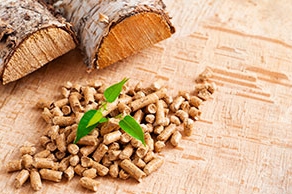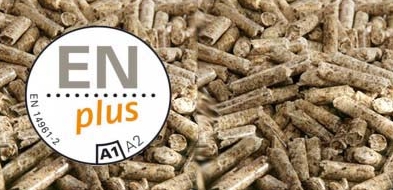The popularity of wood pellets as a source of heat energy is growing - private households, local businesses and large industrial complexes use wood pellets as the main source of heat and energy. First of all, it is caused by environmental safety of wood pellets, as well as good heat dissipation. According to the German Pellet Institute (DEPI) approximately 60% of wood pellets used by private households and about 40% of the total production of wood pellets are used by municipalities, industry, trade and the domestic-needs sector.

Today the production of wood pellets is carried out in a specific pattern, and the resulting products are mandatory to meet certain parameters of quality certification. Indicators of density and durability have become the basis for the development of quality standards for wood pellets. High density provides greater heat impact, while high durability of the granules ensures maximum pellet integrity during transporting process.
We begin our review with the DINplus quality standard. This European wood pellet standard was developed by DIN Certco in Germany in 2002 and gained leading positions not only in German market, but also on the European market as a whole. The basis for the development of DINplus quality standard has become a wood pellet standard EC EN 14961-2, today DINplus also meets the EU standard ISO 17225-2. However, today popularity of this quality standard falls as it was replaced by a new ENplus standart. The most common wood pellet standards are ENplus and DINplus. These quality standards have many similarities, but provide a variety of opportunities for the wood pellet producer. We present you a brief overview each of the presented categories of quality standards.

To date the most common ENplus wood pellet standard has much in common with the standard DINplus, but ENplus greatly expanded the supply process, including certification of the trader, as well as opportunity of tracking the emissions of harmful substances into the atmosphere.rd has become ENplus. ENplus was first used in 2011 and quickly gained popularity among European producers of wood pellets. This wood pellet standard is the result of joint work of the European countries within the Pellcert project. The basis for the development of ENplus quality standard become EU standard EN 14961-2, in the near future is expected to transition to the new standard of wood pellets quality ISO 17225-2.
In conclusion, it should be noted that Germany is among the countries that closely monitor the quality of its products. Wood pellets manufactured in Germany are regularly tested by compliance with the international certification requirements for wood pellets, which ensures high quality of the product.
This material is protected by copyright.
Any copying and distributing without active hyperlink is strictly prohibited!